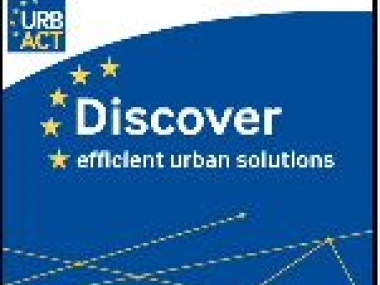New Results of URBACT Projects Now Available!
Edited on
09 October 201720 URBACT projects have just completed their programme of exchange and learning activities. The project partners have been working relentlessly for three years looking for joint, effective and sustainable solutions to major urban challenges. These projects have brought to light solutions that have proven effective and providing valuable support for policy makers and practitioners involved in tackling these challenges. Each project will publish in the coming weeks their final publications and recommendations. Following HerO and REDIS projects' results, here is a look at the results, recommendations and outputs of three projects!

CityRegion.Net - The role of cities in integrated regional development
The municipalities that make up large agglomeration areas are more and more interdependent. At the same time, socio-economic problems do not stop at city limits. In this context, existing administrative structures and policies are not sufficient to treat the growing number of challenges and the action needed. The nine partner cities that are part of the URBACT CityRegion.Net project worked together to develop new structures and tools that make it possible to improve collaboration on the "city-region" level.
The CityRegion.Net project worked on three areas of inter-city cooperation: developing common land-use policies and instruments to avoid urban sprawl, building new financial instruments adapted to general interest projects, and getting all the various stakeholders involved by redefining integrated regional development. Based on the experiences of partner cities, the project formulated recommendations for models of structures for cooperation that could be set up in cities that want to join efforts to face a certain number of issues and share the financial burden: a model of cooperation among small municipalities, a model of cooperation between a large city and neighbouring municipalities, a multi-level decision-making framework.
The network added to this recommendation 5 methodological criteria and questions that should be raised during the development phase of this cooperation.
Discover CityRegion.Net results and recommendations!
FIN-URB-ACT - Integrated Urban Actions for Fostering and Financing Innovative Economies and SMEs
Financing innovative enterprises and SMEs requires the participation of a number of specialised private and public players, which do not generally include cities. Yet, today, these players are indispensible to the economic development and to attractiveness of these same cities. The eleven FIN-URB-ACT partners worked together to define what their role and contribution could be in terms of strategies and instruments that support SMEs, despite their lack of expertise in financing this type of player.
The Fin-URB-ACT network of cities and their Local Support Groups worked on four themes in order to outline their role and missions with SMEs and to apply them through their Local Action Plans. These were: the partnerships that could be developed between the city and its Managing Authority around the issue of SMEs, the needs of very small enterprises and those of innovative enterprises, and finally, the communication aimed at enterprises and project leaders as well as promoting entrepreneurship among a wider audience.
Discover Fin-URB-ACT results and recommendations!
OPENCities - Openness and the competitive advantage of diversity
Within the European Union, we are seeing changes in the migratory movements of people: while certain countries are beginning or continuing to benefit from positive flows, the new Member States are confronted with an on-going exodus of their populations. With the observation that cities open to migrants are more competitive than others as a starting point, the cities participating in the URBACT OPENCities project sought to identify the criteria that found a city's "openness" and international attractiveness, and to develop strategies that not only enable achieving this objective, but also to get ore and more mobile migratory populations to settle in their territory.
The nine partner cities in the OPENCities network and the British Council came to the conclusion that the challenges cities must face in terms of immigration fall under three main themes: Leadership and governance of "open cities", the role of internationalisation, managing integration and inclusion. Good practices and recommendations to leading integrated actions in these three key themes have been published by the project.
Discover OPENCities results and recommendations!
Visit our new page displaying the results of the URBACT projects. It will be regularly updated with the final publications and recommendations of the URBACT projects closing their exchange and learning activities.
Read more:
- URBACT Projects Results - URBACT website
Submitted by admin on
